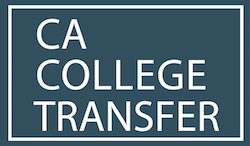The UC Personal Statements and Essays: Best Practices
With UC applicants polishing their essays, better known as personal statements, before the November application window opens, I’ve included an excerpt from my book, How to Transfer to a UC from a California Community College: The Unofficial Guide to help hone the writing process.
______
UPDATE March 2016: For all Fall 2017 applicants, the Personal Statements have been changed to the Personal Insights questions. Click here for more information.
No matter the actual topic, the University of California admissions office has quite a few things to say about the personal statement, and these stay consistent:
They are looking for personal statements that pair with the application, giving a fuller picture of the applicant.
On the surface this seems especially daunting, but it isn’t. On the application this is what they see: GPA and a possible series of activities. There is no semblance of an actual living person. That’s why the essay questions are deliberately broad and cover the same material no matter how they may be configured year to year: “Tell us about an experience or situation and how you reacted to it.” “Tell us why you like your major.” They just want to read something that tells a story about you. It could be a fifteen-minute event that happened after school, but when they finish reading, they will have a hint of your personality and how you think. If you list a series of extra-curricular activities in your application, don’t just repeat them laundry list fashion. They already know all that from your application.
Choose wisely.
Even though they don’t want repetition, this does not mean you cannot single out something you alluded to in your application and go into greater depth. Feel free to repeat if it’s providing deeper insight into you and the event. The key is that when the admissions officer reads the essay they come away knowing more about you and your thought processes than when they started.
They want you to show AND tell.
Berkeley says they look for stories. Writing that you helped at the Special Olympics and from it you learned humility, or it made you feel good, or it aligned with your theory on diversity are pretty standard cliches. Anyone can say that and it doesn’t explain how it affected you. You need a combination of telling and showing the process that led to the impact or change. Write about an actual story while working for the Special Olympics that had a profound affect on you, maybe working one day with a single athlete. Show via a tiny story, but follow up with telling how it led to a change of perspective.
The UCs do not want a list of hardships.
They really don’t. Hardships are over-rated. Use them sparingly.
They want you to single out an event or theme.
Don’t tell them your whole life. Pick one segment or one issue that defines you. This does not mean it has to be one small story come hell or high water, because a lot of students can’t think of one. And when it comes to talking about your major, a story may be harder to come by. But it does mean picking a general theme, and making sure there is a micro-story somewhere within that theme (meaning a sentence or two describing a complementary situation). Remember, they are looking for quality of experience, not quantity.
Show growth, learning, or passion.
Whether it’s leadership, a physical or emotional problem, strong moral fiber, not giving up in the face of adversity, uniqueness, whatever it is— show your growth. Don’t be afraid to talk about a mistake or a failure.
Don’t write about the same thing in both essays.
If you write at length about something in the additional comments, don’t write about it all over again. Everything you write should be adding something new to the application package.
Think small.
Some of the best essays have a small story, the little kernel that led to a powerful observation, or an emotional epiphany. Whether you’re incorporating an instance involving helping the family business, living with your extended family, living without a family, moving a lot, winning an award, helping a sick relative, creating a project, volunteering in the ‘hood, think about how these principles may be applied to enlarge the small kernel that is you.
Conflict vs resolution.
One big question to keep in mind as you develop your personal statements is how is tension being created? By tension, I don’t mean Terminator-level, I mean, rather, did you set up a dilemma or obstacle that was finally resolved? That is the key to a great personal statement. There must be forward movement from point A to point B. Think about the stories in your life that get repeated by your friends or just filed away as an everyday occurrence. Almost every action or thought contains small resolutions:
- Dilemma: I found out my boy friend, who I thought I could trust, was stepping out on me.
Resolution: I tossed him to the curb, and actually felt empowered. - Dilemma: I left a candle burning in my bedroom and the curtains caught on fire.
Resolution: Never doing that again. Always in the room when a candle is burning. - Dilemma: I didn’t study hard enough for the mid-term and got a D.
Resolution: Next two tests, I studied and got an A.
What you want to do in your personal statement is show a situation, conflict, or dilemma (big or small) and what changed in you because of it. Follow these above suggestions and you should ace your essays and make the readers very happy.
“How to Transfer to a UC from a California Community College: The Unofficial Guide” is available on Amazon and iTunes.


Comments (0)